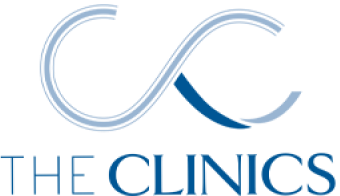
Liposuction
Liposuction, also known as lipoplasty, is a surgical procedure designed to contour the body by removing localized fat deposits from areas such as the abdomen, thighs, buttocks, hips, arms, neck, or double chin.

What is Liposuction?
Liposuction, also known as lipoplasty, is a surgical procedure designed to contour the body by removing localized fat deposits from areas such as the abdomen, thighs, buttocks, hips, arms, neck, or double chin. Surgeons may employ various techniques, including traditional liposuction and advanced methods like Vaser liposuction, to achieve optimal results.
Traditional liposuction: Performed under general anesthesia, this type of fat removal is the most popular worldwide. Through small incisions, a tumescent solution containing saline, local anesthetic, and epinephrine (a drug that constricts blood vessels) is injected into the treatment area. A thin tube (cannula) is then inserted, suctioning away the unwanted fat. Compression garments may be required to help with swelling and contouring.
Vaser liposuction: Similar to traditional liposuction, VASER uses ultrasound energy to break down fat cells first before they are removed. It is considered more gentle and accurate since the VASER effectively liquefies fat cells and separates the fatty tissue from the muscles underneath without harming the healthy tissue.
Why Have Liposuction?
An individual may choose this procedure for the following reasons:
Body contouring: Body reshaping is the number one reason people undergo liposuction. It’s the most effective way to remove stubborn pockets of fat that may be resistant to lifestyle factors such as diet and exercise.
Look better in clothes: Some individuals may choose liposuction to make their clothing look more flattering, or to make it easier to find garments that fit properly.
After weight loss: Losing a large amount of weight can leave behind stubborn fatty tissue. Liposuction can remove the remaining fat deposits and simultaneously address sagging skin using complementary techniques.
Remove lipomas: Benign fatty tumors known as lipomas can look unsightly and cause emotional distress. Liposuction is used for medical and cosmetic reasons in this instance, helping to alleviate the condition and associated anxiety.
FAQ’s
Where can liposuction be performed?
Liposuction can be performed on any of the following areas: abdomen, flanks, back, thighs, calves, hips, buttocks, arms, neck, and chin.
How long do the results last?
The fat cells removed during liposuction do not regenerate; however, it’s important to maintain a healthy diet and lifestyle. Gaining weight can affect your long-term liposuction results.
We invite you to book a consultation with one of our expert plastic surgeons to find out if liposuction is right for you.

Liposuction Quick Facts:
| Cost of Liposuction | TBD |
|---|---|
| Duration of Surgery | 2-4 hours |
| Hospital Stay Required? | Yes |
| Stitches Removed | N/A |
| Days of Social Downtime | 1-2 weeks |

After Surgery:
Downtime and recovery: Each person experiences the recovery period differently. Your unique healing journey will be based on how invasive your technique was, and how many areas were treated. Below are some general guidelines for what you can expect:
1 Day Post-Op: It’s normal to experience some soreness, bruising, swelling and initial feeling of numbness. You will be prescribed pain medication to keep you comfortable. You’ll wake up from the anesthesia wearing compression garments. Make sure to wear these at all times, except for when bathing or using the bathroom.
1 Week Post-Op: Swelling and bruising will start to subside. Alternate periods of rest with light activities such as walking to promote blood circulation. Your surgeon will instruct you on how to care for drains and stitches. Your first follow-up appointment will take place after 5–7 days.
2-4 Weeks Post-Op: You will be able to gradually resume daily activities; however, avoid strenuous exercise until your surgeon advises you accordingly.
Long-term recovery:
Most pain and discomfort should be gone by now. At this point you should see visible results from your liposuction. For long-term success, maintain a healthy lifestyle, keeping in mind that liposuction is not a substitute for a sensible diet and exercise.
What to Expect Before Surgery:
Follow pre-operative instructions: You will be provided with detailed pre-operative instructions by your surgeon. These may include avoiding medications that promote bleeding, making sure you have all the medications you’ll need post-operatively and when to stop eating and drinking the night before.
Arrange for help: You will need someone to pick you up from the hospital and take you home. Having someone to help you with basic tasks and medications for the first few days or weeks is recommended.
Plan for your recovery: You should designate a quiet, comfortable place for recovery. Make sure to take adequate time off work or social engagements as necessary.
How to Prepare for Liposuction?

Do your research
A consultation and medical evaluation with a qualified plastic surgeon is the first step to prepare for your procedure. During your initial meeting you can discuss your aesthetic goals, which technique is best suited for you, and whether you can benefit from any complementary procedures such as abdominoplasty or thigh lift.

Quit smoking
If you’re a smoker it’s best to quit smoking at least six weeks in advance. Nicotine and other chemicals in tobacco can constrict blood vessels and impair your body’s ability to heal adequately post surgery.
ELEGIBILITY The Ideal Candidate for Liposuction?
The ideal candidate is someone who wants to sculpt and reshape specific areas of the body. Additionally, they have stubborn fat that is resistant to diet and exercise. Here are some other factors to consider:
Good overall health: A person should be in excellent health and a non-smoker. This includes having no serious physical conditions that could affect the outcome or be a contraindication to surgery and general anesthesia.
Stable weight: An individual must be at their target weight, having maintained it for several months. Liposuction is not a replacement for a healthy lifestyle and should not be considered as a weight loss method.
Have realistic expectations: Liposuction can dramatically improve body shape and contour; however, it may not completely eliminate cellulite or tighten loose skin.
Good skin elasticity: Younger patients and those with good skin elasticity are more likely to have better liposuction results after the fat is removed.
Be committed to recovery: Candidates should be physically and mentally prepared for the procedure and liposuction recovery process.




